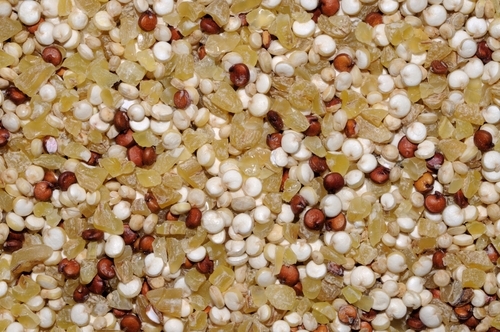By now, most people are aware of the many benefits of probiotic supplementation, including improved digestive health. However, a relatively new area of study regarding the digestive system concerns prebiotics, which are non-digestible fibers found in certain foods.

These carbohydrates, oligosaccharides, provide a food source for the beneficial gut flora (probiotics such as bifidobacteria and lactobacilli) and help promote their growth in the colon. To be classified as a prebiotic, the fibers such as oligofructose or inulin must demonstrate that they are fermented by gastrointestinal microflora, they stimulate the growth of probiotics, they are beneficial to health, and that they are not digested by humans.
Benefits of Prebiotics
Probiotics have been shown to help conditions such as inflammatory bowel disease (IBD), bacterial vaginosis, recurrent urinary tract infections, and H. pylori and thus should be maintained at higher levels through the intake of prebiotics.
Because the Standard American Diet is high in foods that not only prevent the proliferation of probiotics, but also feed pathogenic bacteria, prebiotics can be an important step in maintaining health in the digestive system and overall, especially for infants. Oligosaccharides are found in human breast milk, and studies have shown they exhibit therapeutic or prophylactic effects against B. pertussis, H. pylori and S. pneumoniae. It stands to reason that prebiotics are an important part of a healthy diet, beginning in infancy.
As more research is done on gut flora, the list of health benefits from prebiotics continually grows. Evidence shows that metabolism can be altered based on modulation of prebiotics and probiotics, having a positive effect on weight loss and obesity-related parameters. They have also been found to lower the risk of cardiovascular disease and possibly increase resistance to infection and illness through immunomodulation.
Food Sources of Prebiotics
Though there has been an increase in the consumption of foods containing probiotics as more people have learned of their benefits, many diets are still lacking prebiotics to help feed the probiotics. The following foods contain prebiotics:
- Asparagus
- Bananas
- Burdock root
- Chicory root
- Chinese chives
- Dandelion greens
- Jerusalem artichokes
- Honey
- Legumes
- Maple sugar
- Oats
- Onions
- Rye
It’s not yet clear exactly how much prebiotic fiber the body needs daily, but experts agree that four to six grams are optimal. To get a better idea of how much of these foods you need daily, one banana contains about a gram of prebiotic fibers; they contain one of the lowest amount of prebiotic fiber by weight at just 1 percent. Chicory root contains the highest, 64.6 percent prebiotic fiber by weight, with the remaining foods varying somewhere in between.
Do You Need Prebiotics?
Prebiotics can be especially beneficial for many people who suffer from conditions of the digestive tract, such as Crohn’s disease or IBS, to help maintain the proper balance of microorganisms.
Unlike many supplements and medications, prebiotics are not known to cause negative health effects for people with certain health conditions. Experiencing side effects of prebiotic supplementation is very unusual. However, in high doses, supplementing with prebiotics can cause mild abdominal pain, gas, and bloating. By far, the benefits of prebiotics outweigh any of the mild and rare side effects. They can help take your wellbeing to the next level, especially if you’re one of the millions of Americans suffering from poor digestive function.
Nearly everyone needs prebiotics, particularly those who don’t get enough from their diet. I encourage my clients to increase the foods listed above and to supplement with high-quality prebiotics, or symbiotics (a blend of probiotics and prebiotics), to experience supreme health.
